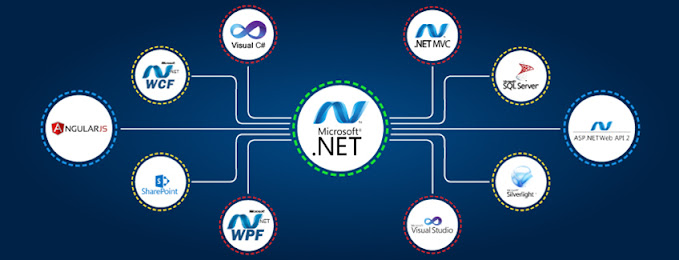Fintech's Secret Sauce: Unveiling the Power of DevOps Implementation
The financial technology (fintech) industry thrives on innovation, security, and speed. To stay ahead in an increasingly competitive market, companies must embrace cutting-edge methodologies that enhance operational efficiency. This is where DevOps services come into play, serving as the secret sauce that enables fintech firms to achieve continuous delivery, robust security, and unparalleled scalability. By leveraging DevOps, fintech organizations can navigate the complexities of financial systems while maintaining regulatory compliance and ensuring high availability for users worldwide.
Understanding the Role of DevOps in Finance
The Imperative of DevOps Implementation in Fintech
DevOps implementation in fintech is not just a luxury; it is a necessity. The industry demands rapid innovation while adhering to stringent regulatory requirements. Traditional IT structures often lead to bottlenecks, hindering the release cycle and slowing down innovation. However, DevOps breaks down silos between development and operations, fostering a culture of collaboration and continuous improvement.
By integrating DevOps in finance, organizations can automate critical processes, streamline deployments, and enhance risk management. Fintech companies can rapidly roll out new features, respond to market demands, and ensure that their systems remain secure and resilient against cyber threats.
The Power of Automation in DevOps ImplementationOne of the hallmarks of DevOps is automation. Fintech companies deal with vast amounts of sensitive data, and manual processes can introduce errors and inefficiencies. Through DevOps implementation, automation ensures seamless code integration, continuous testing, and real-time monitoring. This reduces human error, accelerates software releases, and enhances overall system reliability.
Infrastructure as Code (IaC) is a key DevOps practice that allows fintech firms to manage and provision computing resources dynamically. Instead of manually configuring servers, IaC automates deployment pipelines, ensuring consistency and scalability. This is particularly valuable in finance, where real-time transaction processing and zero downtime are critical.
Security: The Uncommon Yet Essential Component
Security is a major concern for fintech companies due to the sensitive nature of financial transactions. DevOps in finance incorporates DevSecOps, which integrates security into every phase of the software development lifecycle. Traditional security measures often operate in isolation, leading to delays and vulnerabilities. However, DevSecOps ensures that security is ingrained within the development pipeline from the outset, allowing for continuous vulnerability scanning, compliance checks, and penetration testing.
By implementing DevSecOps, fintech firms can proactively detect and mitigate security threats before they escalate. This is particularly important given the rise of cybercrime targeting financial institutions. DevOps allows for the rapid patching of vulnerabilities, ensuring that systems remain resilient against potential attacks.
The Uncommon Advantages of DevOps in Finance
Enhanced Collaboration and Agility
One of the lesser-discussed benefits of DevOps is its ability to foster collaboration across teams. In a traditional fintech setting, development, operations, and security teams often work in silos, leading to miscommunication and delays. DevOps implementation bridges these gaps by promoting a culture of shared responsibility and transparency.
With real-time collaboration tools and automated workflows, teams can align their goals, troubleshoot issues proactively, and deliver superior financial products. This level of agility is crucial for fintech startups and established institutions alike, as it allows them to pivot quickly in response to evolving market demands.
The Power of Continuous Integration and Deployment (CI/CD)
Fintech applications require frequent updates to meet customer expectations and regulatory requirements. Continuous Integration and Continuous Deployment (CI/CD) pipelines streamline the development process, ensuring that new features and patches are deployed seamlessly. By automating testing and release cycles, DevOps reduces downtime and accelerates time-to-market.
CI/CD enables fintech firms to experiment with new technologies, such as blockchain, artificial intelligence, and machine learning, without disrupting core banking operations. This ensures that they remain at the forefront of innovation while maintaining the integrity of their financial systems.
Resilience and Disaster Recovery
Financial institutions must maintain 24/7 availability to support real-time transactions. Downtime can result in financial losses and reputational damage. DevOps implementation enhances resilience through proactive monitoring, self-healing systems, and disaster recovery automation.
By leveraging cloud-based infrastructure and microservices architecture, fintech firms can ensure high availability and fault tolerance. Automated rollback mechanisms further reduce the impact of failed deployments, allowing systems to recover rapidly without affecting end users.
The Future of DevOps in Finance
As fintech continues to evolve, DevOps will play an increasingly pivotal role in shaping the industry's future. Emerging technologies such as AIOps (Artificial Intelligence for IT Operations) will further enhance automation, allowing for predictive maintenance and intelligent decision-making.
Moreover, serverless computing and containerization will redefine how financial applications are deployed and scaled. DevOps will empower fintech firms to adopt these innovations seamlessly, ensuring optimal performance and cost efficiency.
Conclusion
The power of DevOps services in fintech cannot be overstated. From enhancing security and agility to driving automation and resilience, DevOps is the backbone of modern financial technology. As fintech companies continue to push the boundaries of innovation,
DevOps implementation will remain the key to unlocking efficiency, compliance, and scalability.
DevOps implementation will remain the key to unlocking efficiency, compliance, and scalability.
By embracing DevOps in finance, organizations can achieve a competitive edge, delivering seamless digital experiences to customers while ensuring robust security and operational excellence. The future of fintech belongs to those who harness the full potential of DevOps, making it the true secret sauce of success.




.png)
Comments
Post a Comment